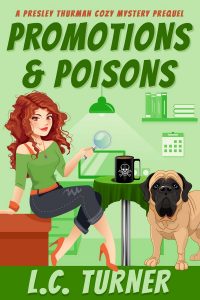Writing Your Novel’s Premise Statement
Writing your novel’s premise statement is a good writing practice. I’d even go as far to say it’s bad writing practice NOT to write a premise statement for your novel.
My mother was an English teacher, and she insisted on proofing my papers. If my premise statement wasn’t rocked solid, she wouldn’t even read any further. She’d stop there and make me go back at it.
I used to hate it, but I have to admit now I appreciate what she did for me.
Now I can’t even imagine starting my book without a premise statement. I can write without an outline but not without that foundational sentence.

To me, my book’s premise is like the mission statement for the book I’m about to write. It steers me, tells me what I’m going to write, and more importantly how I’m going to write it.
It’s important to have a mission for your business, for the way you want to live your life, and having one for your book is no different.
It’s about making that bold statement of where you want to take things. Regardless of what thing you’re talking about.
It sets the tone. I usually re-read it before I start my writing for the day. I often have so many projects going on at one time reviewing my premise helps. It helps me to focus my brain on the book I’m sitting down to work on.
Technically, your books premise is a couple of very succinct sentences that sum up your entire story.
The other 60,000 words are just all the descriptors.
Makes you kind of wonder why we don’t write 2 sentence books. Except how boring would that be. Readers WANT the details.
Now I don’t find writing the premise of my books any easier than a few (several, ok a LOT) years ago when in school. I swear it sometimes takes me longer to write the premise than it does the entire book. Mainly, because there are so many things your premise needs to contain.
Fiction usually contains that one overall big event that the entire book is building up to. Then you have your main character who is going to go through some type of growth and change throughout the book.
You want your premise statement to convey all that. Again, in a couple of sentences.
Here is the premise for my current WIP.
A romantic suspense novel where the heroine tries to clear her boyfriend’s name and fend off life-threatening danger from the bad guys while finding herself having feelings for another man who just happens to be running from the same people. Will she clear her boyfriend’s name and more importantly will she follow her heart?
So, yes it’s a bit of a run on sentence, but it’s for my eyes only (and yours right now). As grammatically incorrect as it may be it pretty much tells the entire story in the two sentences.
My main character is a heroine.
She’s trying to
- Clear her boyfriend’s name
- Fends off life-threatening danger in the process
- Has feelings for another man
- Needs to decide what she truly feels
I can now take this information and start generating my scene ideas.
Every scene will involve the Basics of Fiction components.
1. Set up
2. Rising stake
3. Resolution
Over and over until I write The End.
Now I’m oversimplifying here, but the premise statement gives me all the high-level information I need to start writing my scene ideas.
I also find that this stage is a good time to run the idea past my beta readers and my friends. If they don’t think the story sounds interesting when I pitch them the premise over coffee (or wine), then I go back at it until they do find it interesting. Though sometimes it’s tempting to just find new friends (kidding).
A few times I’ve scrapped the idea all together because I’ve realized it was dumb. But usually, it needs a little more polishing, so it’s more exciting and compelling.
Once you’ve nailed your premise, then type it up and print it out. Put it somewhere where you will see it every time you write, so it’s ingrained in your brain.
Besides giving you the foundation for your book, it will also be useful as your elevator speech. When people ask you what your working on you can tell them your succinct couple sentences.
What are your thoughts? Do you find writing a premise statement hard? Is it necessary?


